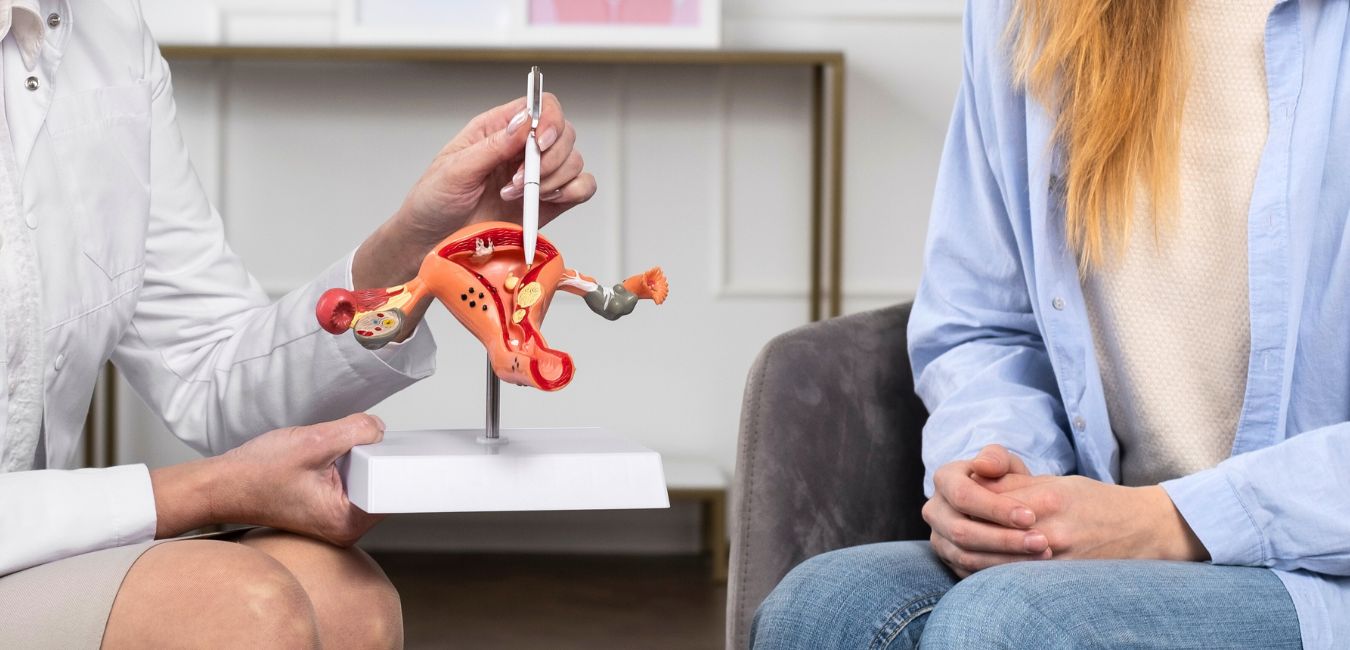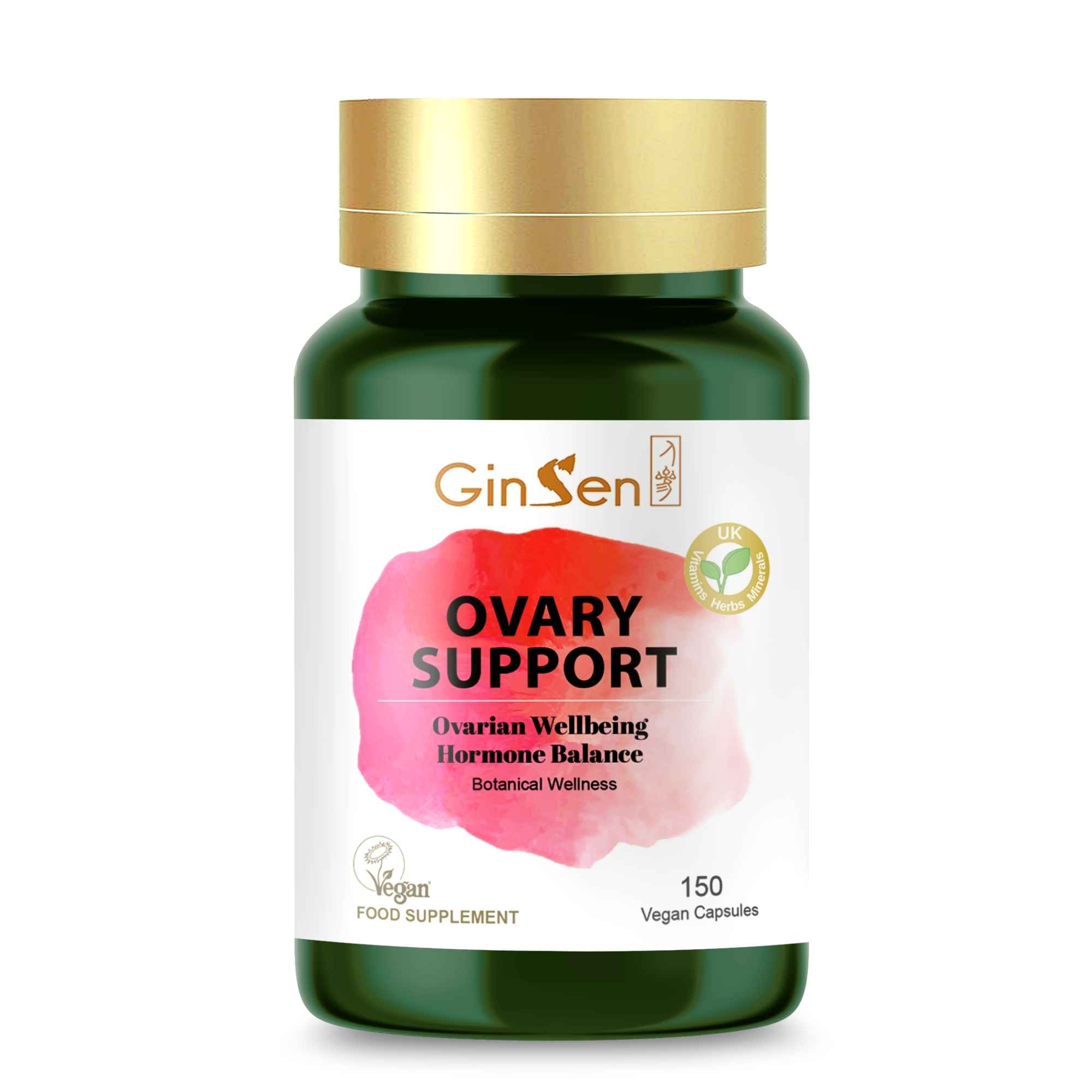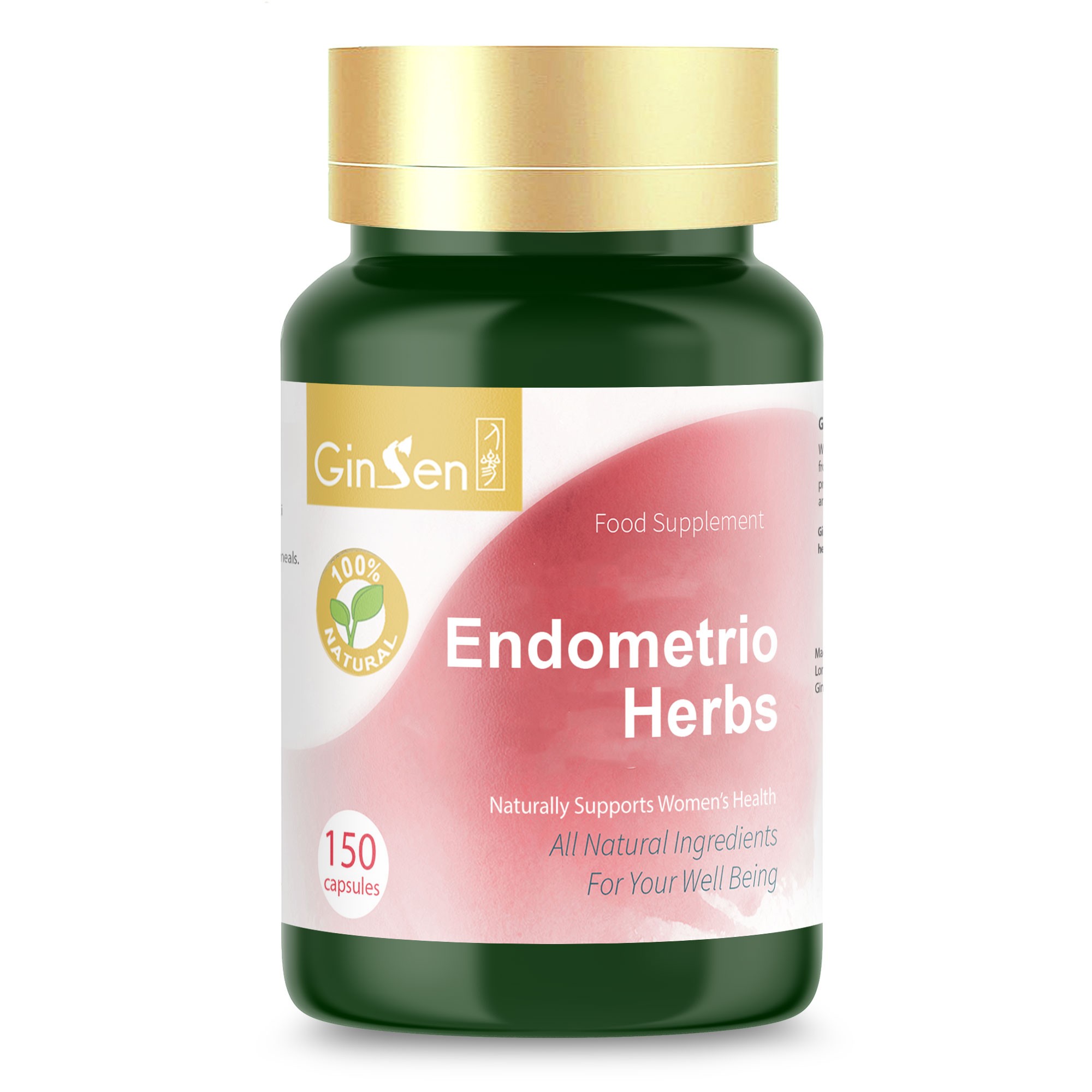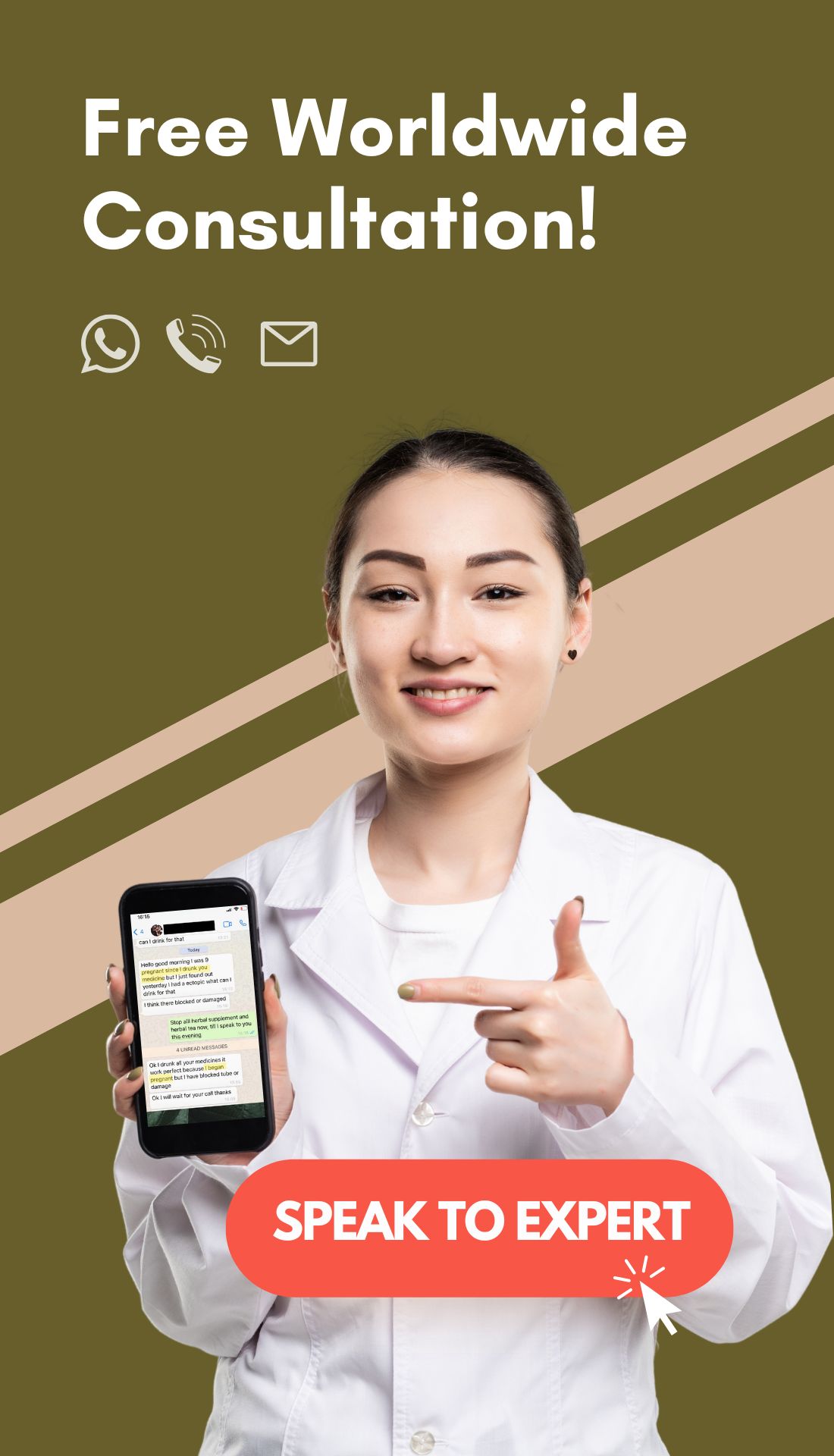
Endometriosis vs. PCOS: What are the Need-to-Know Differences?
Endometriosis and polycystic ovarian syndrome (PCOS) are both conditions affecting the female reproductive health. If either disorder is left untreated, the hormonal imbalances can lead to infertility. Approximately 10-15% of people suffer endometriosis in the UK, with around 1 in 10 people experiencing PCOS.
PCOS is a metabolic disorder where the ovaries and adrenal gland secrete too much male sex hormone (androgens), causing multiple ovarian cysts and range of other symptoms. Endometriosis, on the other hand, occurs when endometrial tissue is present outside the uterus (usually in the lower abdominal cavity), leading to chronic pelvic pain and infertility.
These conditions are frequently confused with one another despite having different symptoms. Let’s take a closer look at the difference between endometriosis vs. PCOS and what you can do to resolve them.
Symptoms of Endometriosis vs. PCOS
Understanding polycystic ovaries vs. endometriosis primarily comes down to the symptoms. While there’s significant overlap in terms of heavy bleeding, irregular periods, and pain, the specifics differ between the conditions.
Remember, although symptoms are part of the diagnosis, it’s possible to have either condition and be asymptomatic.
| Endometriosis | PCOS |
| Menstrual Irregularities – Heavy period, bleeding between periods | Menstrual Irregularities – Heavy, irregular, missed periods |
| Painful menstrual period (Dysmenorrhea) | Pelvic pain |
| Pelvic pain | Hirsutism (Excess Hair Growth) |
| Pain During Intercourse | Infertility |
| Infertility | Acne and Oily Skin |
| Fatigue | Weight Gain |
| Bloating and Gastrointestinal Symptoms | Hair Thinning or Hair Loss |

Underlying Causes of Endometriosis in TCM
Traditional Chinese Medicine (TCM) views endometriosis differently from Western medicine – although there’s some overlap. While Western medicine places emphasis on the patches of endometrial tissue outside the uterus, TCM looks deeper at the underlying causes.
Blood stasis, for example, refers to poor circulation, leading to blood clotting and pain. You’ll experience this as pain during your period. Blood stasis often goes hand-in-hand with Qi stagnation, which is a blockage in the flow of life energy. The result? Pain, bloating, and emotional fluctuations.
Lastly, there’s cold accumulation and phlegm-dampness. These two are also linked, being associated with an excess of Yin energy. Eating too much cold or damp foods introduces these two factors into the body, leading to constriction of the uterus, impaired blood flow, and heaviness or pain – everything we see in endometriosis.
Related Read:
Underlying Causes of PCOS in TCM
The causes behind PCOS are radically different. Here, the problem is primarily kidney deficiency and spleen deficiency. The kidney regulates reproductive function, controlling the hormone balance and ovulation, leading to the wild fluctuation in hormones observed in PCOS. Meanwhile, the spleen controls blood flow and transforms food and drink into energy. When it’s deficient (combined with phlegm-damp accumulation), you see poor digestion, weight gain, and cyst formation.
Then there’s liver Qi stagnation, which triggers everything from emotional stress to irregular menstruation. It also plays a role in the hormonal balance, further tipping it into dysregulation.
Related Read:
Can You Have Both Endometriosis and PCOS?
Yes. In fact, according to a 2015 study, women diagnosed with PCOS had a much higher rate of endometriosis (36.4% vs. 4.4%) compared to people without hospitalisation with a PCOS diagnosis. These results confirmed the earlier finding that there is a “significant association between endometriosis and women with PCOS with pelvic pain and/or infertility.”
Similarly according to TCM, it is possible to have both endometriosis and PCOS, as they can share common underlying patterns such as Qi stagnation, blood stasis, phlegm-damp accumulation, and deficiencies in the Kidney, Spleen, or Liver.
Related Read:
How Does Endometriosis and PCOS Affect Fertility?
Endometriosis is one of the leading causes of infertility. Can you get pregnant with endometriosis? Yes. If the endometrial tissue is located away from the reproductive system, then, while the symptoms are often worse, you can get pregnant with endometriosis. However, if endometriosis is located around the ovaries or fallopian tubes, it can cause inflammation, scarring, and cysts and make it challenging to conceive.
In time, the fallopian tubes can become blocked due to adhesions, preventing the egg from entering the uterus during ovulation. Moreover, a 2019 paper noted that endometriosis also increases systemic inflammation, altering sex hormones and potentially damaging the egg or sperm, further decreasing fertility.
Related Read: Getting Pregnant With Endometriosis: Is It Possible?
PCOS’s link to infertility is clearer cut. Getting pregnant with PCOS is a challenge that many women face. Women with PCOS will have higher levels of both luteinizing hormone (LH) and reduced levels of follicle-stimulating hormone (FSH). Add to that increased levels of both insulin and androgens, and the result can be periods that are either infrequent or absent. These hormone imbalances will have an impact on ovulation, many women with PCOS don’t ovulate regularly; some don’t ovulate at all.
Ovulation occurs when an egg is released from ovary and into fallopian tube. In order for conception to occur, sperm needs to fertilize the egg before it moves on down the fallopian tube. If the body is not ovulate, there will be no egg waiting in fallopian tube for sperm to fertilize—and pregnancy can’t happened.
Depending on the severity of polycystic ovarian syndrome (PCOS), people with pcos may be concerned about their ability to conceive and bear children.
Related Read:
How to Get Pregnant with PCOS using Chinese Medicine
Inducing Ovulation in PCOS With Chinese Medicine (Anovulation)

How Does Treatment Differ Endometriosis vs PCOS?
Acupuncture for Endometriosis vs PCOS
Acupuncture is a successful treatment advocated by TCM. Unlike other more specialised treatments, it’s highly effective for both endometriosis and PCOS – solving the underlying infertility problem. That being said, while acupuncture is used in both conditions, the fundamental goal and treatment principle are different.
In endometriosis, for example, acupuncture aims to promote blood and Qi flow, warm the uterus, and resolve phlegm and dampness. Thus, as a 2023 review found, acupuncture is highly effective at reducing pelvic pain for patients with the condition.
At the same time, in PCOS, acupuncture tonifies the kidneys, strengthens the spleen, resolves phlegm-dampness, and soothes the liver to allow proper Qi flow. A 2010 review concluded that acupuncture is safe and effective in women with PCOS. It helps by “increasing blood flow to the ovaries, reducing ovarian volume and the number of ovarian cysts, controlling hyperglycaemia through increasing insulin sensitivity and decreasing blood glucose and insulin levels, reducing cortisol levels and assisting in weight loss and anorexia.”
How to Find The Best Acupuncturist
Not all acupuncturists have the same skills or results. Choosing the right acupuncturist is the difference between a successful implantation and failure. So, what should you look for?
1. Check Credentials and Qualifications: Ensure your acupuncturist is a member of recognised organisations. Here are GinSen, our acupuncturist are members of British Acupuncture Council (BAcC) and The Royal Society of Medicine (RCM). Membership in these bodies guarantees we adhere to high standards of practice and ethics.
2. Experience and Specialisation: Look for an acupuncturist with extensive experience, particularly in fertility and women’s health. A specialist in these areas will better understand your specific needs and challenges. At GinSen all our experts have over 30 years of experience in their respective fields.
3. Consultation and Communication: Reputable acupuncturists typically offer a free initial consultation to discuss your concerns without pressuring you into treatment. Use this opportunity to assess their communication style and determine if you feel comfortable and supported. We offer free no obligation consultation that is available worldwide.
4. Check Reviews and Success Stories: Research online reviews and look for success stories from previous patients. Positive feedback and proven outcomes can provide confidence in the acupuncturist’s ability to support your fertility journey effectively. Read our success stories here.
Recommended Supplements for Endometriosis vs PCOS
Ovary Support for PCOS
GinSen’s Ovary Support are ovarian health supplements, a unique blend to support women who have and PCOS or are trying to conceive (TTC). New Improved Formula contains expertly formulated vegan friendly 8 herbs and vitamins to reduce stress, support reproductive health and promote ovarian health.


Endometrio Herbs Supplement for Endometriosis
Expertly formulated by women’s health experts to assist women who are experiencing fertility challenges due to endometriosis, giving the highest chance of conceiving naturally. Made with natural ingredients Endometrio Herbs can also reduce endometriosis symptoms including pain and menstrual irregularities.
Final Thoughts
Comparing PCOS vs. endometriosis is important for diagnosing each condition. Both disorders can affect your fertility and should be considered if you’re struggling to conceive. However, it’s not an either-or situation – women with PCOS are at a higher risk of developing endometriosis.
Remember, the best solution is to tackle the underlying causes through a combination of Western medicine and acupuncture. Supported by numerous studies, it’s a safe and effective treatment for women who are struggling to conceive.

For more information about how Chinese Medicine can help you with Endometriosis and PCOS, book your free consultation with our Chinese Medicine experts today
* These statements have not been evaluated by the Food and Drug Administration. This information is not intended to diagnose, treat, cure, or prevent any disease. We can’t guarantee the treatment result, as the symptoms of conditions are unpredictable and vary greatly from person to person. The treatment length and recovery time also varies for individual. Please visit our clinics website: GinSen where a specialists will discuss your care and provide a consultation, and the treatment will be designed to meet your individual needs.





